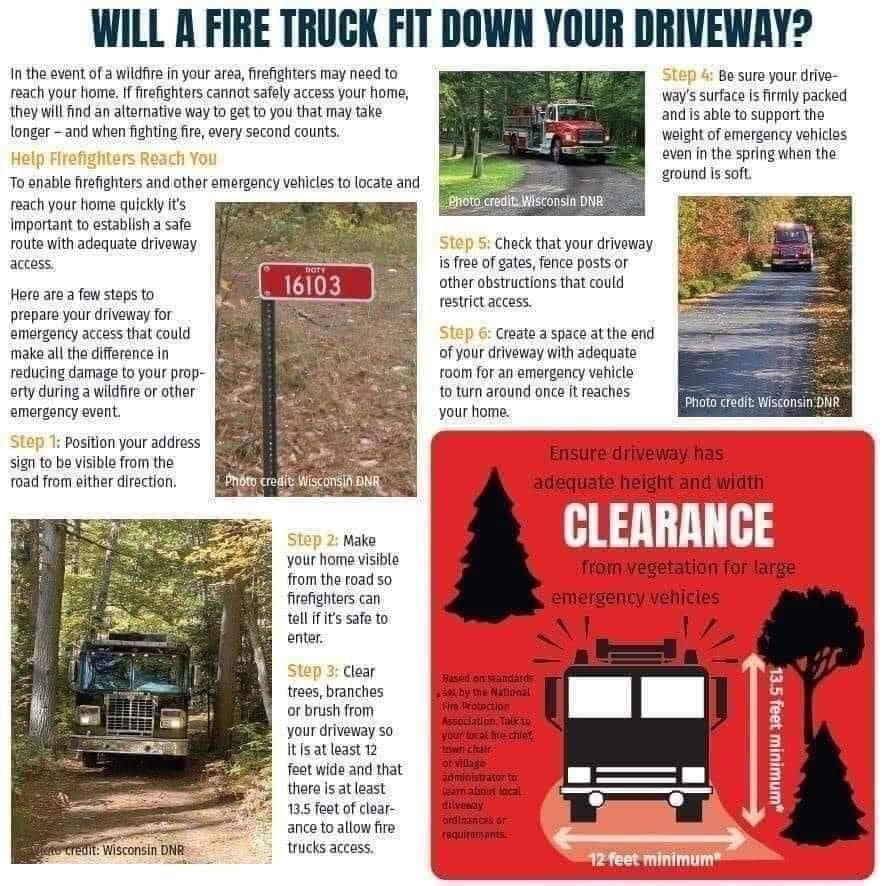Fire Safety
Below are short articles and infographics with fire safety information we think is important to share.
From Dec. 2022 Trenton Quarterly Newsletter:
Did you know: …that home heating is the number two cause of home fires? … that half of all home heating fires are reported in the months of December, January, and February? …that portable electric space heaters cause two in five deaths in space heater fires?
Keeping our homes warm in winter is a priority for all of us. Heating costs have risen significantly, and we expect many will consider using alternate heating appliances and space heaters.
Please consider this advice from the National Fire Prevention Association (NFPA):
- Keep all flammables at least three feet from heating equipment like a furnace, fireplace, wood, or pellet stove.
- Have a three-foot “kid-free zone” around open fireplaces, wood, and pellet stoves.
- Make sure the fireplace has a sturdy screen to stop escaping sparks. - Ashes must cool before going into a metal container. Keep the container at least 10 feet away from your home or other buildings.
- Never use your oven to heat your home.
- Have a qualified pro install stationary space heaters, water heaters, or central heating equipment according to local codes and manufacturer’s instructions.
- Have a qualified pro clean and inspect heating equipment and chimneys annually.
Follow Electric or Portable Heater Safety:
- Purchase a heater with the seal of a qualified testing laboratory.
- Keep the heater at least three feet away from flammable items and people.
- Choose a heater with a thermostat and overheat protection.
- Place the heater on a solid, flat surface.
- Make sure your heater has an auto shut-off to turn the heater off if it tips over.
- Keep space heaters out of the way of foot traffic. Never block an exit. - Keep children away from the space heater.
- Plug the heater directly into the wall outlet. Never use an extension cord.
Space heaters should be off and unplugged when you exit the room or go to sleep. Even with best prevention strategies, fires happen! Having early warning devices in the home is critical to safety. Test your Smoke, Carbon Monoxide (CO) and Gas Alarms monthly. Change batteries when you change clocks for daylight savings. Prepare and practice home escape planning in case of a fire, CO, or gas emergency. Have a family meeting place, and with friends and family visiting for the holidays, always share this information with them as well. Always remember to call 911 if you have an emergency.
